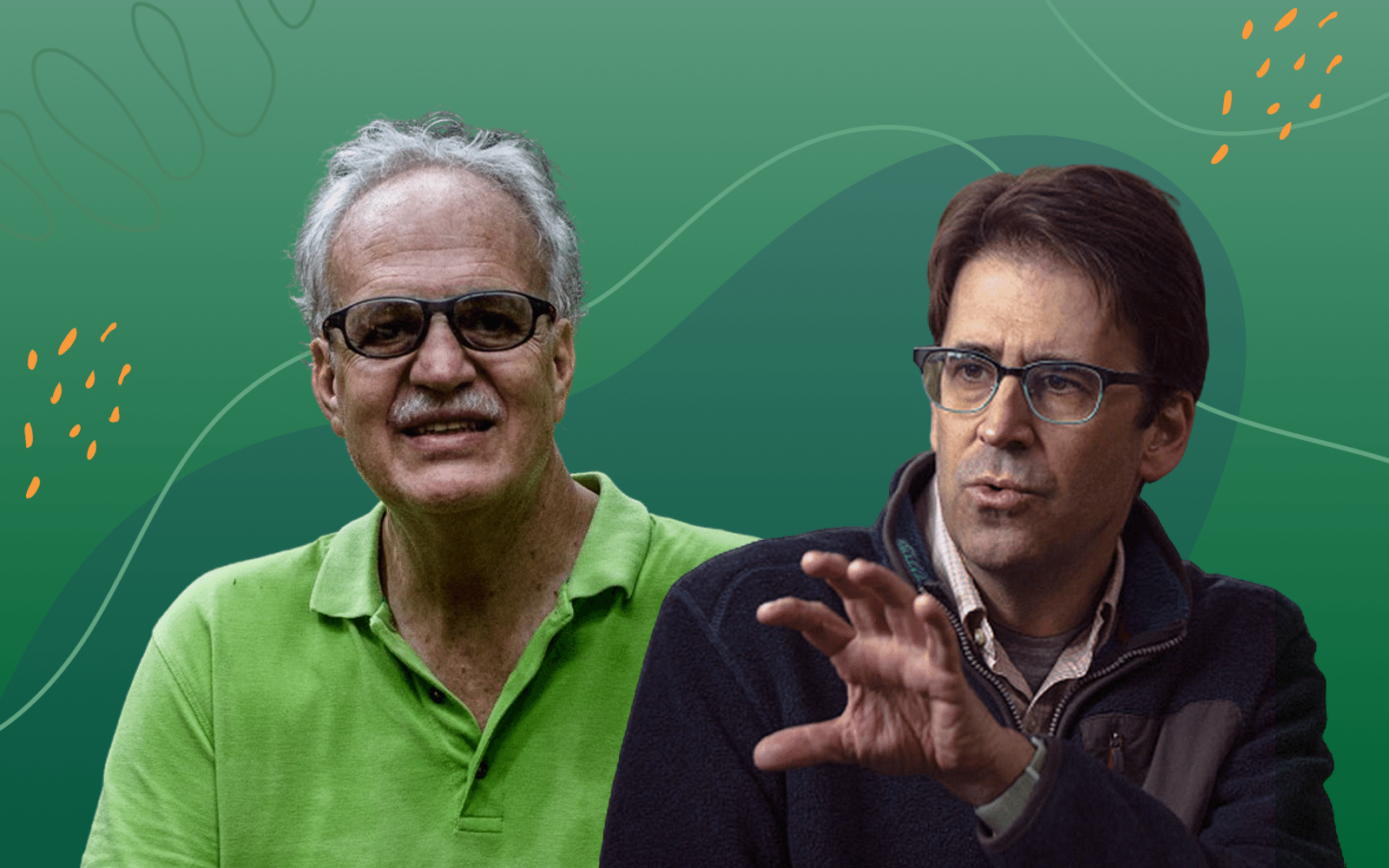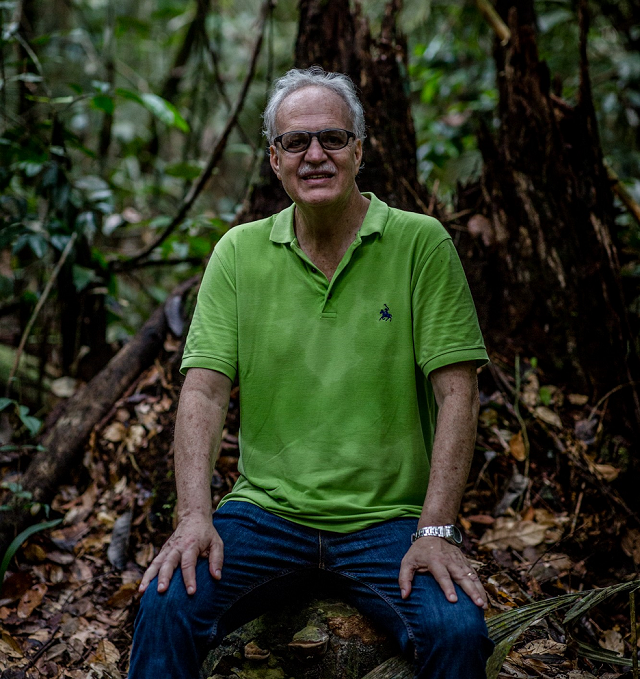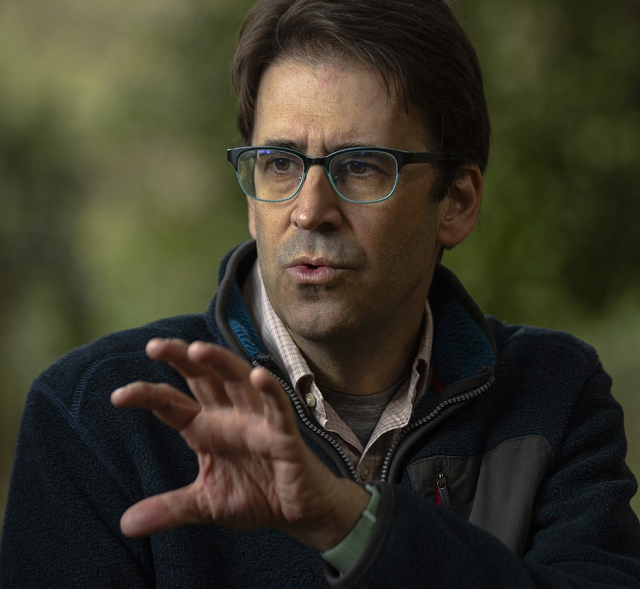Ashoka recognizes scientists Carlos Nobre and Tasso Azevedo as social entrepreneurs

For decades, scientists have been alerting society to the impacts of human activities on ecosystems. They demonstrate an increased risk of extreme weather events, present evidence of biodiversity loss, and they point out the consequent losses for agriculture, energy production, infrastructures, public health and equity.
"Over 40 years of formulating the field of action for social entrepreneurs, what we see is the increasingly significant presence of scientists who want to go beyond alerting others. They are instead catalyzing innovative social solutions to systemic problems," says Anamaria Schindler, president Emeritus and global leader of Ashoka.
Ashoka is honored to recognize two renowned Brazilian scientists as Ashoka Fellows: Carlos Nobre and Tasso Azevedo are promoting new paradigms of coexistence with the forest, which combine prosperity, valorization of traditional knowledge and conservation of biodiversity.
A New approach
As a university student studying at the Technological Institute of Aeronautics (ITA), in the early 1970s, Carlos Nobre had the opportunity to visit the Amazon for the first time at a time when focusing on the negative effects of deforestation were rarely covered. The magnitude of the rainforest captivated his curiosity and inspired him to redirect his studies from electronic engineering to climate science.
After completing his doctorate in Meteorology at the Massachusetts Institute of Technology (MIT) in 1983, Carlos returned to Brazil to be close to his family. He quickly joined the National Institute for Space Research (INPE) and began collaborating with pioneering studies on the forest-climate interaction, which elucidated the role of the Amazon Forest in the atmospheric conditions of the region and the world.
These studies captured the attention of society and brought climate change to the level of political priority. In the early 1990s, Nobre was already part of the Intergovernmental Panel on Climate Change (IPCC) and was already warning about the risks of savanization of the Amazon forest - and began to create the scientific, political and civic infrastructure necessary to avoid a high-risk scenario for the region.

In subsequent years, Nobre established the public institutional bases to leverage climate research, building and leading interdisciplinary teams to produce data that would influence national and international political agendas. The institutions that use this data as a basis of their climate change work (and are today crucial in predicting and facing the climate crisis) are the Weather Forecast and Climate Studies Center (CPTEC), the Earth System Science Center (CCST), the National Center for Monitoring and Natural Disaster Alerts (Cemaden) stand out , the National Institute of Science and Technology for Climate Change (INCT-MC), the Brazilian Panel on Climate Change and the Brazilian Network for Research on Global Climate Change.
Nobre was one of the authors of the Fourth Report of the IPCC, having received, with the other members, the Nobel Peace Prize in 2007. He became one of the greatest communicators of climate change, using his ability to tell stories, influence public debate and mobilize different sectors of society.
When he retired from INPE in 2016, Carlos posed a new challenge from 2017: to leverage a new productive model for the Amazon in which the main component of adding value is knowledge.
“It is a new approach to the world's tropical forests, which combines zero deforestation, forest restoration and a new bioeconomy of standing forests and flowing rivers,” says Nobre.
“This is to ensure that the region is projected as an innovation center, which encourages the co-creation of a diversity of products and services with high added value, involving local communities, research centers, universities and companies, committed to the forest in foot."
Environmental Architect
The idea that forests could be simultaneously conserved and productive was a revelation for Tasso Azevedo, who in the 1980s along with his father, visited a pulp mill under construction in the Foz do Iguaçu region. Forests are responsible for almost half of the rain that falls on Brazilian territory. They support agriculture and the country's main source of energy, hydroelectric. “The Amazon alone releases 20 billion tons of water vapor into the atmosphere each day. Even so, we have one of the highest deforestation rates in the world, driven by the production of commodities such as soy, beef and wood," says Azevedo.

In 1995 – two days after graduating in Forest Engineering – Azevedo participated in the foundation of Imaflora - Institute of Forest and Agricultural Management and Certification. The mission: to disseminate certification systems for forest and agricultural products and create new bases for a sustainable forest economy. In addition to improved certification mechanisms and adapted to the Brazilian reality, Imaflora - directed by Tasso in the first 7 years - contributed to a change in the mentality of stakeholders in the forest production process. This was at a time when there were rare experiences of collaboration between the private sector and civil society.
In the early 2000s, deforestation in the Amazon had reached alarming levels. Azevedo went to the Ministry of the Environment to compose the team of the newly appointed Minister Marina Silva. In the ministry, he led the development of the bill that regulates the management of public forests in Brazil and obtained its approval, which allowed the establishment of a regime for the concession of forests to private entities, linking authorizations for the extraction of forest resources to the fulfillment of socioenvironmental norms.
Azevedo also led the creation of the Brazilian Forest Service. He was one of the co-coordinators of the National Plan to Combat Deforestation in the Amazon, which resulted in an 80% reduction in deforestation; and he was the architect of the Amazon Fund, which became the largest fund forest conservation and the world's first scale scale payment instrument.
With the Brazilian Forest Service structured, he dedicated himself to the climate agenda, advising the federal government in defining goals to reduce greenhouse gas emissions in 2009, which made Brazil the first developing country to propose absolute targets for reduction.
In 2011, Azevedo returned to civil society to lead two open data initiatives: the Greenhouse Gas Emissions Estimation System (SEEG) and the Annual Coverage and Land Use Mapping Project in Brazil (MapBiomas). By facilitating the flow of information and resources, Tasso builds bridges between civil society, the government and the private sector for the conservation of forests. He is seen by his colleagues as one of Brazil's great environmental architects, shaping mutually reinforcing institutions, policies and systems that are designed to withstand time and political instability.
Pioneering social function
Carlos Nobre and Tasso Azevedo play a pioneering social role. They are what Ashoka calls Scipreneurs. "It is a combination of scientist and social entrepreneur, who uses scientific tools to revolutionize a system or sector - in the way of thinking and doing - to provide answers to the complexity of problems that societies face." explains Andrea Margit, communication leader and new paradigms for Ashoka Latin America.
The way in which scientists become social entrepreneurs is not the result of a heroic act or a perception of opportunity. Most of the time, the trajectory of these scientists reveals a commitment to science in the service of social transformation that is forged from a very early age, in general, in childhood or youth. It is when Scipreneurs, like Nobre and Azevedo, develop skills typical of social entrepreneurs, such as empathy, teamwork, creativity in problem solving and experience the transforming power of contemporary society.
For Rafael Murta, director of Community and Transforming Territories at Ashoka Brasil, a fundamental challenge nowadays is to create conditions for all young people to develop their transforming capacities. First, mastering the social and emotional skills needed to engage in solving systemic problems. And second, inspired by Nobre and Azevedo, it is necessary to structure initiatives and scenarios so that young people develop scientific fluency, alongside skills and knowledge about how to use information. “A process that will generate new knowledge will allow us to make the urgent transition to a low-carbon, socially inclusive economy”, says Murta. "This is what the 21st century requires of us and the education of our young people," he concludes.
Ashoka welcomes Carlos Nobre and Tasso Azevedo - and their social innovations - on joining the organization's worldwide network. And it invites all young people, all those who consider science as a vocation, and the whole of society to explore more about their paradigm shifting initiatives.
About Us
Ashoka is a civil society organization, and a pioneer in promoting social entrepreneurship. It is dedicated to consolidating a worldwide movement of people who transform the world for the good of all. Created in 1980 and present in Brazil since 1986, Ashoka brings together a network more than 3,800 social entrepreneurs (383 in Brazil) as well as 300 Changemaker Schools and Young Changemakers throughout the world. The members of Ashoka's network of social entrepreneurs are people from civil society who generate social innovations to establish more just, equitable and sustainable ways of life. They influence systemic changes in public policies, market practices, patterns of behavior and mentalities. Get to know the Ashoka Social Entrepreneurs network here.